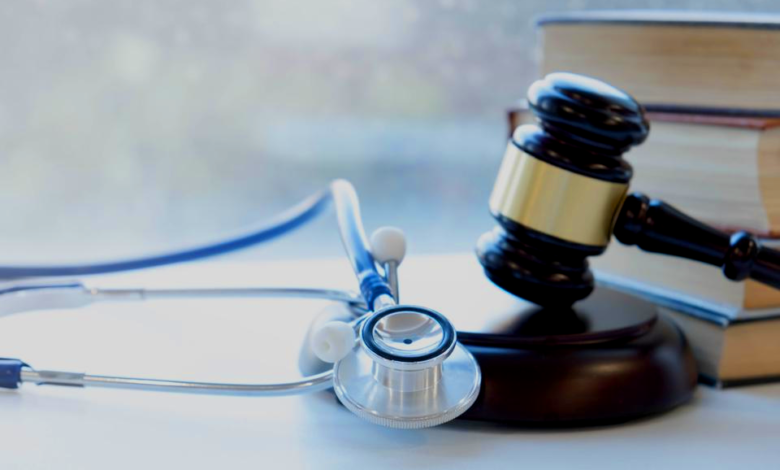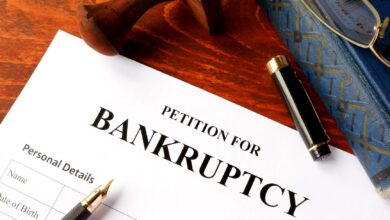Who pays your medical bills in a personal injury lawsuit?

It might be challenging to consider filing a personal injury lawsuit when you are engaged in an accident that causes personal harm due to the uncertain circumstances. What rights do you have? For what is a person responsible? How does my case appear? Next, what do you do? Do I need legal assistance? Like a lawyer? The number of queries and worries after accidents is endless in each instance. Here is a summary of what you need to know about who is liable for paying for your injuries after accidents (and a personal injury lawsuit) in California to help you make sense of the situation.
When you’re involved in an accident, the confusion of the situation can make it difficult to think clearly. A personal injury lawyer can help.
You may be concerned about who will handle your case and cover your injuries if you were hurt in a personal accident that was someone else’s fault. It might be challenging to think coherently due to the complexities of each situation. You must be aware of your legal rights as well as how personal injury legislation affects your situation. A skilled attorney may also be required to establish culpability in a variety of incidents.
Read More : Expectations When You Work With A Semi-Truck Accident Lawyer
In California accidents, if someone else’s carelessness causes you harm, they are liable for covering your medical costs as part of the personal injury settlement. Their insurer may take over and assist with any or all of these personal injury expenses if they lack the funds or insurance coverage to handle them all on their own.
To find and gather the facts you need about the accident and your injuries, a personal injury attorney may be required. They will then utilize this information to create a strong personal injury case. After an accident, a lawyer and injury law business will be a continuous supply of personal injury resources in addition to assisting you with filing personal injury claims. Whether or not the issue reaches a court of law, they are in charge of making your case make sense and establishing who is at fault.
Potential attorneys should be able to explain the timing of your personal injury claim in a manner that makes sense to you if they have prior expertise with personal injury claims. A lawyer should provide you all the facts you need about your claim and offer consistent legal advice for your case. A knowledgeable lawyer may be able to provide an overview of a normal personal injury or even estimate the potential value of a personal injury in your situation.
Attorneys will examine the accident scene, watch the defendant over time, locate and gather data and records required to establish culpability, examine related incidents, and maybe establish culpability in court. A lawyer will also make sure you don’t overlook any due dates for submitting crucial accident-related paperwork. An experienced attorney is required since there are certain dates and deadlines that cannot be missed.
Who pays my medical bills for my personal injury case?
It’s easy to figure out who will pay for your injuries if you have health insurance. Up to the policy limitations, your health insurance will cover your lost income and personal injuries. In the event that you lack health insurance or your policy limit is very low (less than $10,000), you may need to sue the other motorist in order to get a payment for your losses and injuries. It is the responsibility of attorneys to make sure the plaintiff gets fair compensation after incidents like this.
Who was at blame for the accident is the basis for determining culpability in a personal injury lawsuit. Negligence is defined as failing to exercise reasonable care in situations when there is a disregard for the potential harm to others. In incidents like these, they may in turn cause harm to others. For this reason, a settlement is required. A lawyer may assist in establishing responsibility, and a settlement makes these parties accountable for the harm they cause.
California is a comparative negligence state, which means that even if you were partially at fault, it is still possible that another driver could be held financially liable for paying your medical bills.
You could still be able to get compensation from another motorist if you were partly at fault for your accident in a state that uses the “comparative negligence” standard for determining culpability. A court may hold them entirely liable for covering your medical bills and other accident-related costs if you can demonstrate that their activities caused or worsened an accident. This is true even if you too had some culpability and they were just partly to blame.
California is a comparative negligence state for a variety of incidents. A person who was partly at blame for inflicting an accident might nonetheless get compensation from another party under the legal notion of comparative negligence. If you are determined to be 20% at blame for your injuries and 80% not, the injured person may get 80% of their damages from you and just 20% from the other driver in each instance under this legal concept.
There are three primary categories of tort law in general: strict responsibility, purposeful conduct (sometimes referred to as “intentional torts”), and carelessness. Failure to act with conventional standards of care—that is, acting in a way that is unreasonable in comparison to how most individuals would respond in the same situation—is considered negligence.
According to strict liability, a person may still be held accountable even if they were careless or had no malicious intent. Because there is often little thought given to whether or not someone meant their acts, these two kinds frequently overlap (negligence). If you have been hurt and need additional legal advice, speak with a lawyer. They will have a lot more expertise with instances like yours.
What happens if I don’t have health insurance or car insurance?
If you don’t have health insurance or auto insurance after a personal injury accident, your injuries could not be covered. You could have to cover the costs of your legal action and personal harm out of pocket. If you don’t have private insurance, you may apply for Medicaid and other government programs that assist pay for medical expenses. To find out whether there are any programs available where you live, get in touch with the Department of Health Care Services (DHCS) office in your area.
Applying for a credit card with low interest rates and no annual fees may help you pay off your hospital expenses over time without incurring additional charges if you are not eligible for Medicaid or other public assistance. You might also ask friends and family members to donate money to assist pay some of the costs of recuperating from an injury by using an online fundraising platform like GoFundMe or YouCaring. By using their resources to assist you reach a mediation with the other party or fully recover your losses in a settlement, legal counsel may be the only option available to you. You may also decide to try to recover everything with the proper lawyer or attorneys.
How is fault assessed for a typical personal injury?
Identifying the party at fault is the first legal step in every personal injury lawsuit.
- Any damages arising from an accident are entirely the responsibility of the motorist or pedestrian who caused it. If the pedestrian or motorist who caused the accident was also partly to blame for the damages, they might be held partially liable. This means that they might not be entirely to blame for all of the losses, but they would still be held more accountable than any other party involved in the incident.
- Each driver is required to cover half of any property damage expenses resulting from a collision between two cars if both drivers were equally irresponsible (each contributing 50% of their share of failure). These numbers, however, are merely recommendations; depending on variables such as prior record citations and accidents and the degree of harm suffered by victims in collisions with other vehicles or pedestrians close to San Diego County, one party may be required to pay more than 25% or less than 75%.
Who pays my medical bills in a personal injury case?
All damages must be covered by the at-fault driver’s motor insurance provider if you are hurt in a collision and need medical attention. Your medical expenses may also be partially or fully covered under your policy’s uninsured/underinsured motorist coverage.
If your losses are not fully covered by the at-fault driver’s insurance, you may be able to sue him or her for personal injury in order to get a settlement that would further compensate you for these additional costs. Whether or not the matter goes to trial, your lawyer will be able to establish who is at fault, and you will be compensated fairly for your accident claim.
How are medical costs covered if I was partially at fault in the personal injury lawsuit?
If your insurance company pays for your personal injury and you were somewhat at blame for the accident, they will deduct the amount of culpability depending on your percentage. In other words, your insurance company would only pay $2,100 for your personal injury (70% of $3,000) if your healthcare provider charged you $3,000 and you were held responsible for 30% of the damage. There is no dispute as to whether or not anyone involved in the collision (such as passengers) may sue their vehicle insurance if you were entirely at blame for the accident and they suffered injuries.
Will my settlement cover all of the expenses in my personal injury claim?
It’s critical to realize that a settlement in California is not a given. Following an accident, a settlement may be used to cover lost income and injuries, but not pain and suffering. The severity of your personal injury and other variables, such as the length of time you were hospitalized or unable to work due to your injuries, will determine how much your settlement will be.
After an injury, workers’ compensation payouts from their employer are the most prevalent source of income. If you were hurt at work and are eligible for benefits under California law, workers’ compensation offers pay replacement (more on this below).
Read More : Top 5 Mistakes When Hiring A Personal Injury Lawyer
Along with wage replacement benefits, workers’ compensation also helps pay for medical costs associated with workplace injuries until you reach maximum medical improvement, which is the point at which your doctor concludes that you have not improved since the injury date. If certain conditions are met, you may be able to get past this point.
A lawyer could have to demonstrate in court the severity of your pain and suffering if it persists. Your lawyer would have to demonstrate that the defendant’s carelessness is causing you to suffer on a regular basis.
Consider a personal injury attorney. Personal injury lawyers can help you file personal injury claims or better understand your lawsuit/ personal injury law.
Getting the treatment you need after an accident should be your first concern. Following that, it’s essential to pursue the responsible party in order to get the required compensation. However, one has to have some knowledge of personal injury law at this point.
Personal injury attorneys are knowledgeable in these types of situations and may assist you in obtaining a fair payment. A personal injury lawyer will take on your case and make sure you are compensated fairly for the injuries sustained in the accident. Given that your livelihood is at stake, your case will be given careful consideration.












One Comment